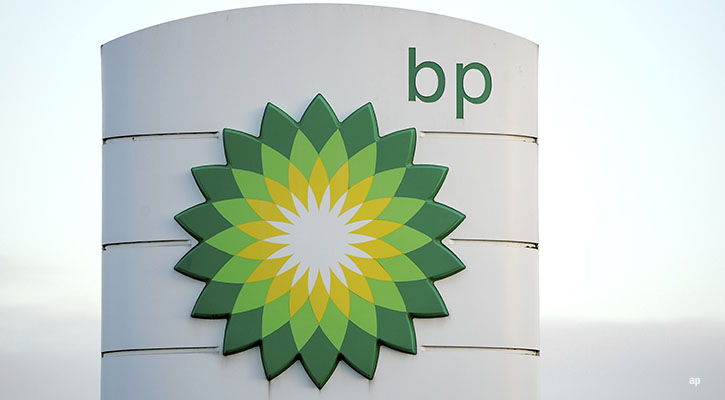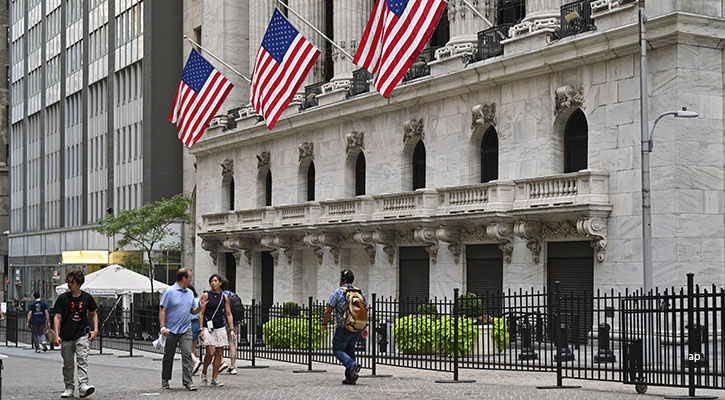
BP (BP.) shares fell 5% in London on Tuesday morning after reporting a fall in profits for the third quarter. This is the first set of results since the abrupt departure of chief executive Bernard Looney on September 13.
On an underlying replacement cost basis, the measure that oil companies use in financial reporting, profits fell to $3.29 billion, from $8.15 billion in the same period last year. Analysts had forecast profits of more than $4 billion, and this triggered an immediate reversal in the share price to below £5. A drop in profits had been expected, however, because in Q3 this year oil and gas prices were lower than in 2022, when they had been supercharged by the Ukraine war. On a statutory basis, profits came in at $7.31 billion, from $1.98 billion the year before.
BP’s numbers have improved on the second quarter, but they have still missed market expectations, Stuart Lamont, investment manager at RBC Brewin Dolphin, says.
“After a tumultuous year or so, with a ‘reset’ to its strategy and the departure of the previous CEO, the company is focussing on major upstream oil, gas, and LNG assets and slowing investment in renewables. Profits and free cashflow remain relatively strong and will underpin planned returns to shareholders, with a higher dividend than last year and a further share buyback. This may well raise eyebrows in the current environment, particularly with oil prices predicted to continue their recent rise amid geopolitical tension.”
Analysts at UBS pointed to weaker results from the Gas and Low Carbon Energy division, where profits missed estimates by more than 40%. It’s a far cry since February 2023 when strong profits from BP and Shell inflamed the debate over windfall taxes and companies making excessive profits from the Russia-Ukraine conflict.
War Boost to Crude
But the current fourth quarter has already seen a rise in oil prices, amid conflict in the Middle East – which BP references as “geopolitical tension” – and Opec+ output restrictions.
"European gas and Asian [liquefied natural gas] prices will be driven by weather, demand recovery in Europe and China and ongoing geopolitical tension. In the US, weather is also a risk factor, but higher than normal storage levels and higher production should help to dampen volatility," the company said.
It added that refining margins across the industry will be lower in the current quarter, the last of the financial year.
For 2023, BP forecasts upstream production to be higher compared than in 2022, especially oil output.
In terms of shareholder distributions, BP announced another share buyback worth $1.5 billion, the same as in the August 2023 results. The dividend has been increased from 6 US cents to 7.27 cents. BP shares are up 4% this year, even factoring in today’s fall, but they’re still trading below the Morningstar fair value estimate of £5.60.
Rival Shell reports Q3 profits on Thursday. Check out all the Morningstar-rated UK companies reporting over the next two weeks here.
Whither BP's Green Strategy?
The sudden departure of former CEO Looney, who had pushed the company ahead of its rivals in climate goals, caused concern among some investors. Would BP row back on its ambitious targets? Morningstar analyst Allen Good says the company has soothed some of these anxieties:
"Despite recent management turnover, BP remains committed to its transition strategy. It reiterated its commitment earlier this month at an investor update where it also increased its 2030 EBITDA targets for its hydrocarbons business and entire company by about 5% and 4%, respectively, as well. Regarding hydrocarbons, it plans to grow production, through 2025 and hold that level constant through 2030, excluding divestments, which should lead to EBITDA growth through 2025 as well.
"Yet it still expects to commit about 40% of investment to its transition businesses – low carbon energy and convenience and mobility – by 2025, leaving its transition in place. Those businesses are projected to deliver over 20% of EBITDA by 2030. This level of non-hydrocarbon investment ranks as one of the highest among its peer group and concerns over returns on this investment have likely weighed on BP’s valuation."




























